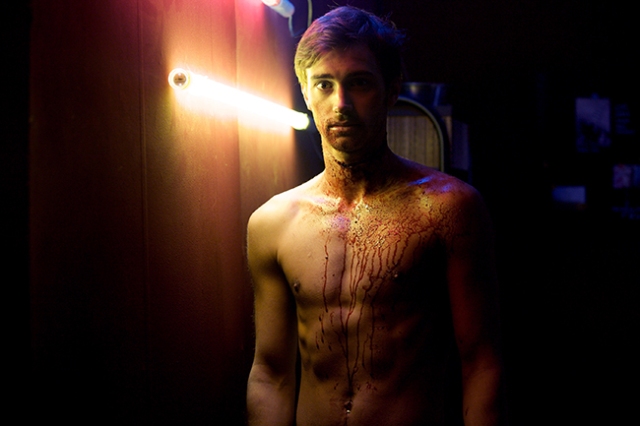Jump into And Then I Was French without knowing what it’s about and in places you’d be forgiven for thinking it’s a coming-of-age romance. It has all the characteristics of one: the fortuitous meeting between a hunky guy and shy girl, the awkward conversations and the cloistered daydreams.
The delightful thing about French is realising it isn’t that predictable to decipher, as the filmmakers evade the usual rules of genre and stitch a narrative from elements of Gothic romance, 80s body horror and kitchen-sink drama.
The result feels a little like Frankenstein’s Monster, but this approach is often why young filmmakers are so thrilling to watch. French may only be Dog Eared Films’ first feature film, but it’s already been nominated for a National Film Award and selected to premiere at the East End Film Festival.
It’s easy to see why. One of the most startling British films to emerge this side of 2016, French evokes pre-Hollywood Andrea Arnold, and is shrouded in the same creeping, female-centric dread that fuelled Roman Polanski’s Repulsion.
Our protagonist is Cara, a hospitality management student with a mousy demeanour and shy Scottish lilt. Played by quicksilver young actress Joanna Vanderham, Cara represents the ordinary girl on every street corner, girls too insecure to talk to boys they like and whose default state is to fade into the background. Her quiet little world is punctured by the arrival of American heartthrob Jay (a suitably dreamy Lewis Rainer) whose soulful eyes and frenetic personality fans longing in every corner of Cara’s university campus.
He’s a Hollywood siren in a land of lambs.

Written and directed by Claire Leona Apps, the film’s finest moments flirt with the common thriller trope of the double. Take the first, beautifully juxtaposed scenes. Cara’s classroom is presented as a sterile bubble of precision and order, where she dutifully folds towels and arranges vials of massage oil.
This scene melts into a party later that night, where a floating Chinese lantern slyly mimics Cara’s awakened desire. As her eyes meet Jay’s across the green, she is transfixed and cast afloat. Anyone who has fallen in love will recognise this moment; it’s as sudden and swift as an icy river or sharp blade.
Like her heroine, Apps’ narrative cuts deep. The model of starry-eyed love, Cara is romantic and naive, basking in the patch of sunlight that Jay vacates and giggling after he kisses her on the hand. It’s romance in its purest guise.
But the difference between genders always startles and Apps isn’t afraid to examine men and women’s contrasting outlooks on romance. While Cara tells a friend that she loved Jay from the moment she saw him, Jay’s brother brags about sucking on the area between a ‘woman’s pussy and asshole’. Such comparisons feel brutal, but necessary. As Cara’s identity begins to splinter and fragment, the film experiences a similar breakdown, its fairy tale set-up falling apart and filling with darker, serpentine shadows.
While intoxicating, the film’s various layers can feel mismatched, and the multiple shifts in tone may alienate. Matt’s brother, played with aplomb by Tom Forbes, is ridiculous: a hypermasculine model that terrorises prostitutes in a drug-induced fever and broods in his apartment with a pack of hellish fighting dogs. It’s a delicious dissection of the urban male, but its depravity will turn many viewers into unwitting participants. The film’s last ten minutes are similarly excessive, veering into Gaspar Noé levels of sexual violence.
Yet there are big questions here, if you care to look beyond the instant gratification of bodily gore. As Cara changes herself into a girl Jay will like, every quirk and individual trait falls away, leaving her sultry but vacant. During this transformation, Apps nudges us into thinking about love and beauty. What does beauty mean in an age where a woman’s appearance is edited, filtered and modified? In a pivotal scene, Cara says we only love people’s veneers. If this is true, do we look for soulmates or just people who match our own aesthetics and ideals? And does entering a union mean losing our own self?
French will be overshadowed by recent and much glossier films on female identity, such as Queen of Earth and The Neon Demon, but it’s a fierce debut from a talented group of filmmakers. Desire may fuel the most romantic films, but it’s frightening to see the flipside, where desire sledgehammers and opens the door to obsession, hysteria and self-hatred. French is a similar punch to the gut. Whether this is positive or not is up to you.
*Originally published in music & culture magazine The 405

